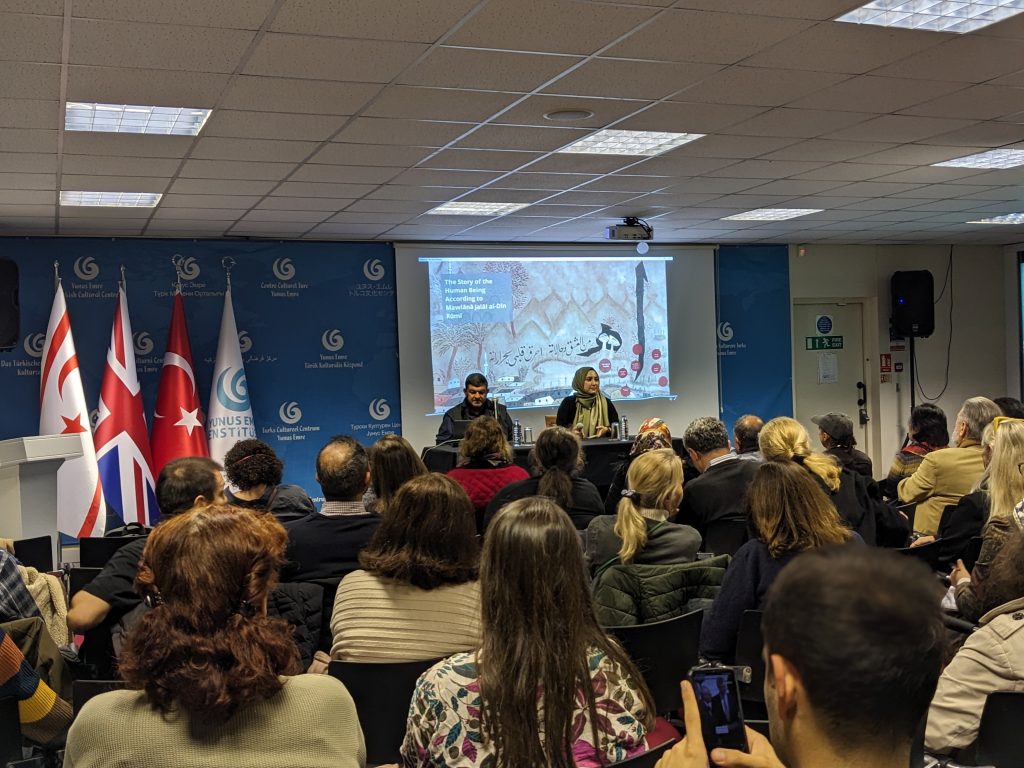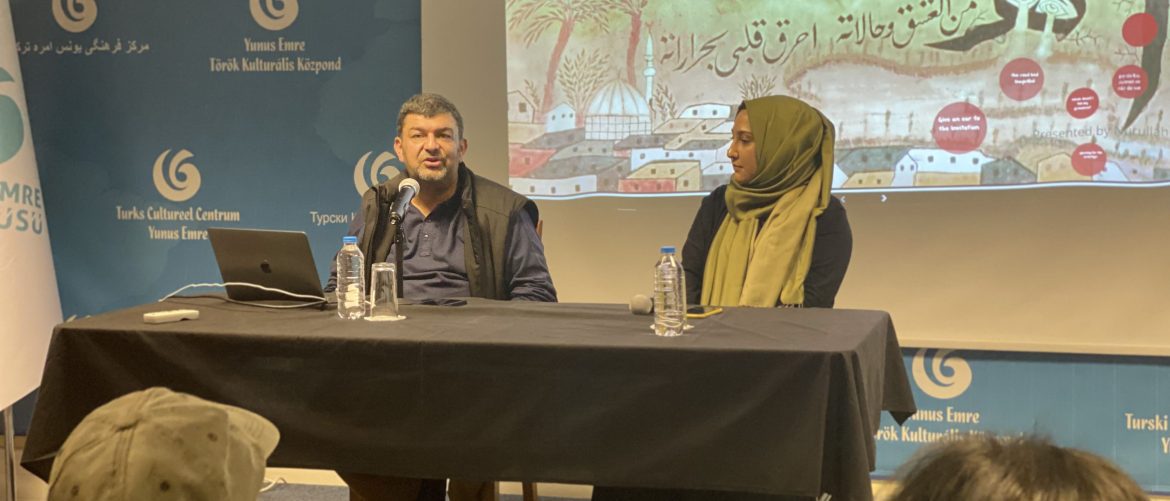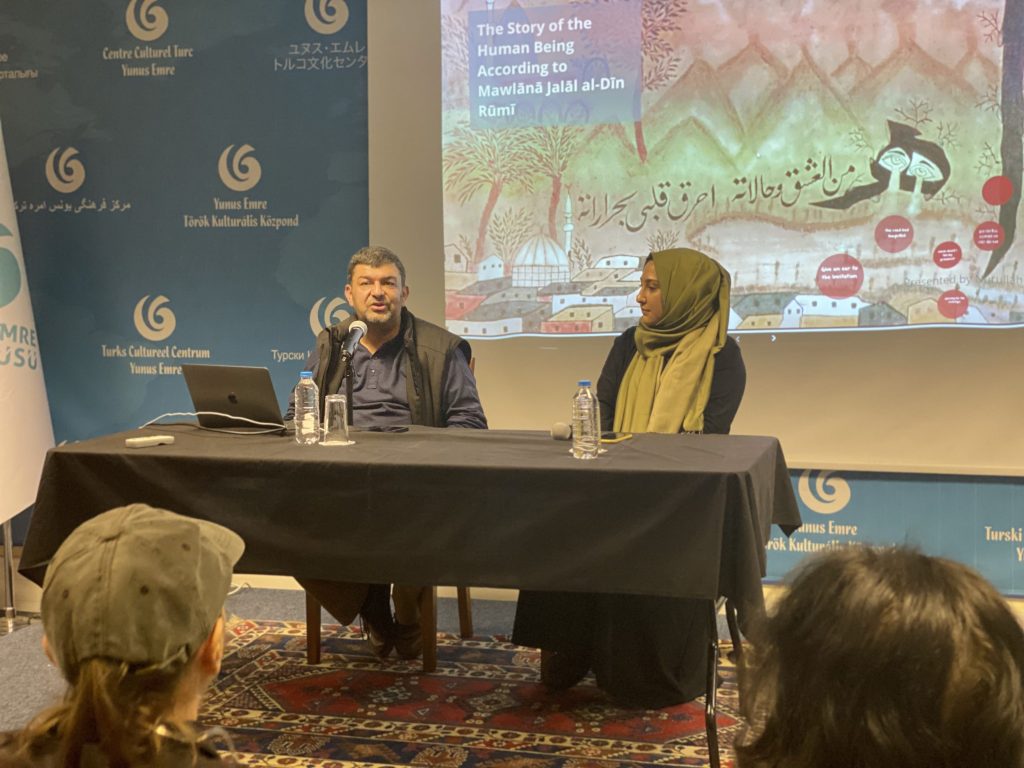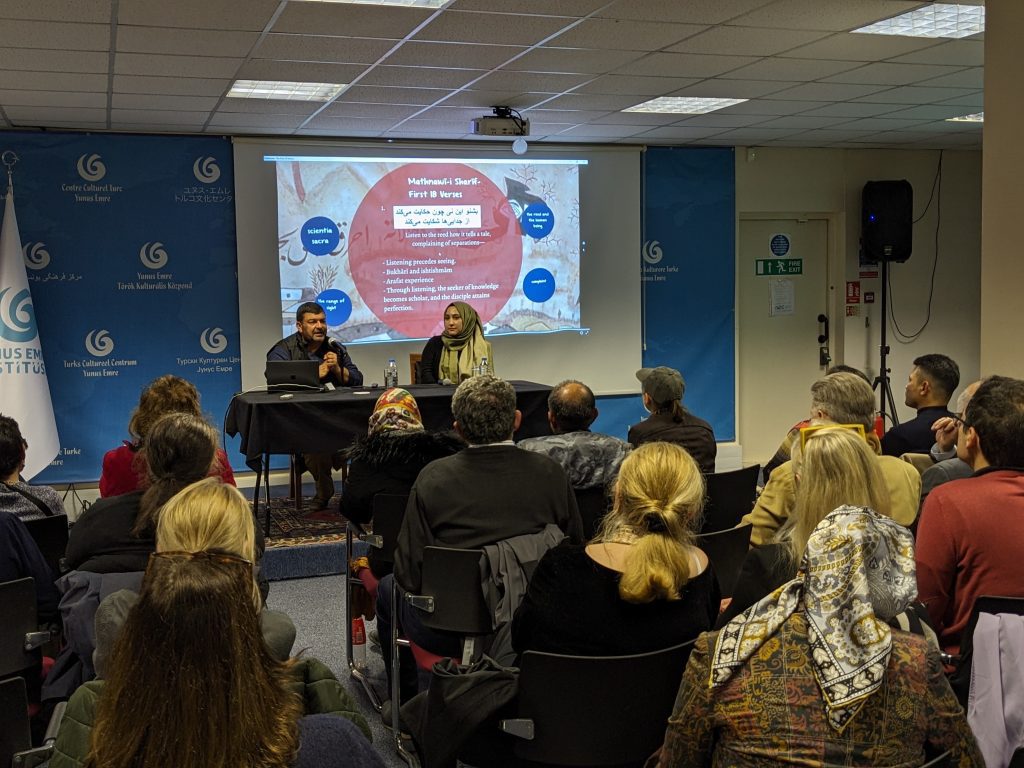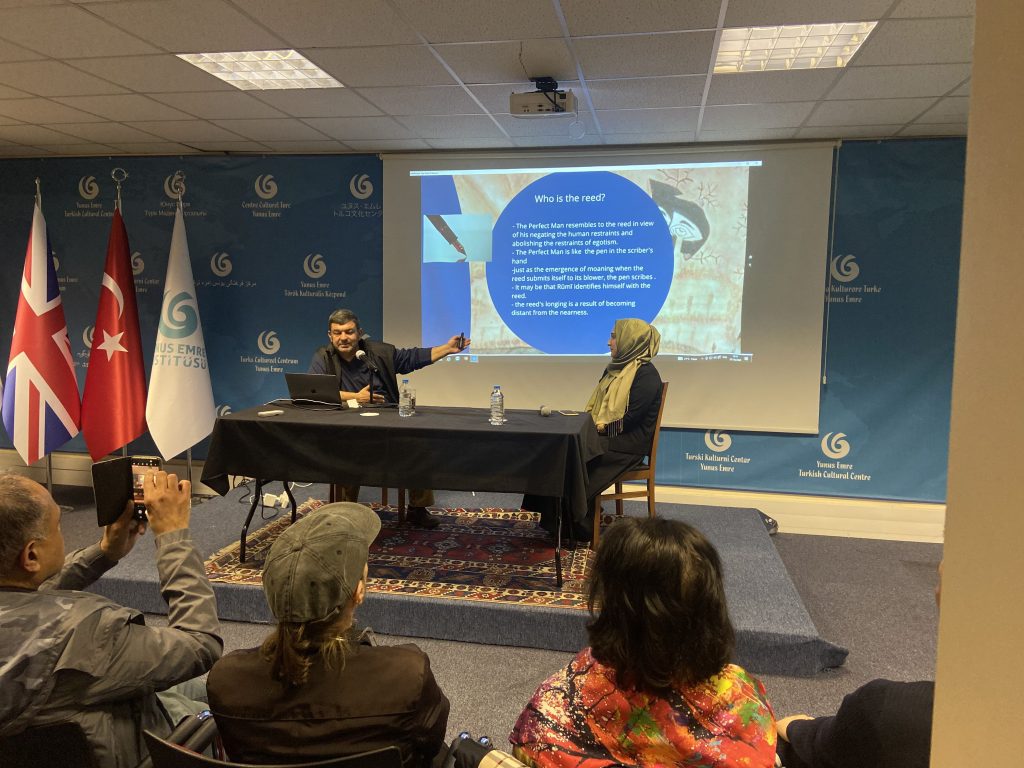 Yunus Emre Institute London hosted an enlightening event on Monday, October 21st, with renowned scholar Nurullah Koltas. The dialogue offered a captivating journey into the world of sufi wisdom, unveiling the significance of Rūmī’s timeless teachings and their impact on the human quest for the Edenic or primordial state.
Yunus Emre Institute London hosted an enlightening event on Monday, October 21st, with renowned scholar Nurullah Koltas. The dialogue offered a captivating journey into the world of sufi wisdom, unveiling the significance of Rūmī’s timeless teachings and their impact on the human quest for the Edenic or primordial state.
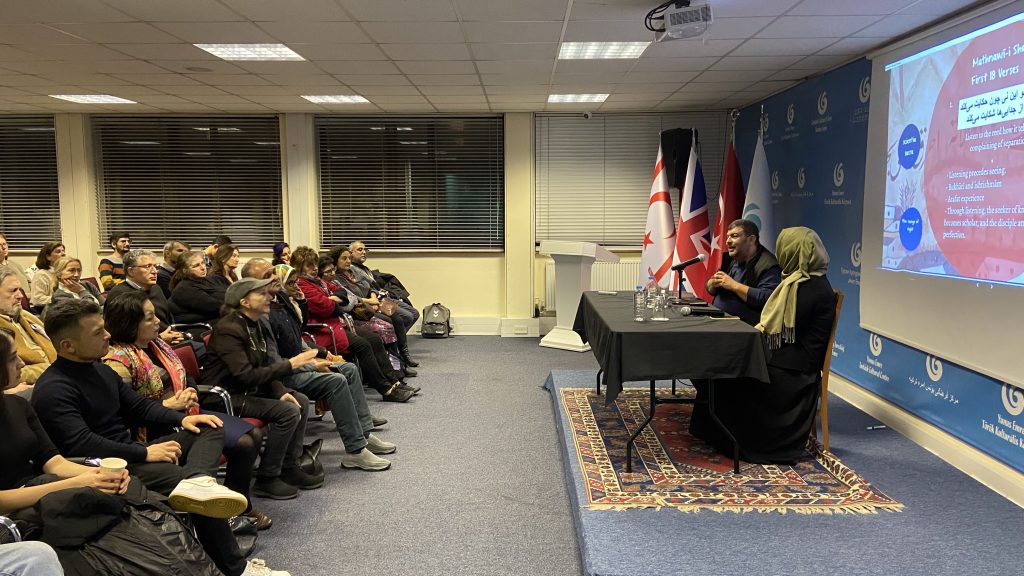
During the talk, Koltas mentioned the significance of the pre-eternal covenant with God, which drives humanity’s search for the primordial state, making it the very goal of life. He eloquently conveyed how Rūmī, alongside sufi luminaries such as Yunus Emre and Haji Bektash-i Wali, stressed the necessity of following this spiritual path.
Koltas illuminated Rūmī’s symbolism in the first 18 verses of the Mathnawī, where the reed-bed and the reed (nay-i sharif) represent the human being and their origin, the Edenic state. Rūmī’s invitation to listen to the story embodied in the notes from the reed, commonly known as the nay instrument, was a focal point of the discussion.
In Koltas’s insightful commentary, he drew connections between the nay and the concept of the Perfect Man (al-Insan al-Kamil) while also emphasizing that the sound of the nay finds its source in the Divine Breath (nafkha-i Ilahi). Furthermore, he highlighted the nurturing of the voice of the Perfect Man, as explained in the story found in the first 18 verses of the Mathnawī.
The talk explored the heart as a place of remembrance, a repository of spiritual wisdom and consciousness. Placing gnosis (knowledge based on personal experience or perception) at the centre of spiritual wayfaring, Koltas emphasized how Rūmī’s works provide invaluable clues for those on the spiritual quest. These insights continue to inspire and resonate with readers worldwide.
Yunus Emre Institute London was delighted to have facilitated this inspiring event. The evening’s talk and questions following were a testament to the impact of cross-cultural exchange and the enduring influence of spirituality on the artistic endeavours of diverse civilisations.
About the speaker:
Nurullah Koltaş began his undergraduate education in English Teaching at Gazi University and completed it in 1997 at Selçuk University’s Department of English Teaching. In 2003, he obtained his master’s degree in the Department of Sufism at Selçuk University’s Social Sciences Institute, followed by the completion of his doctoral degree in the Department of Islamic Theology at Selçuk University’s Social Sciences Institute in 2009.
In 2013, he assumed the role of an academic faculty member in the Department of Sufism at Trakya University’s Faculty of Theology. He currently serves as a faculty member at Trakya University’s Faculty of Theology in Edirne. His body of work includes published books, translations, articles, conference papers, and book chapters.